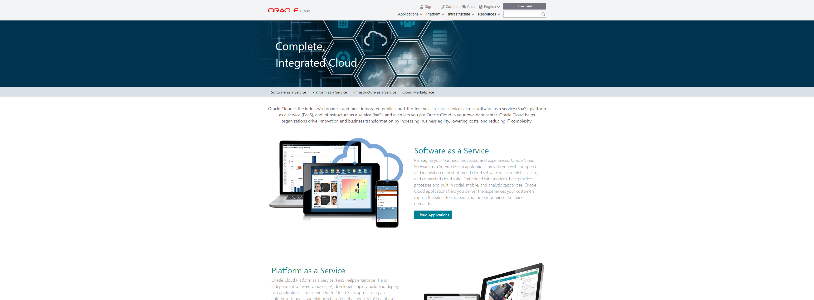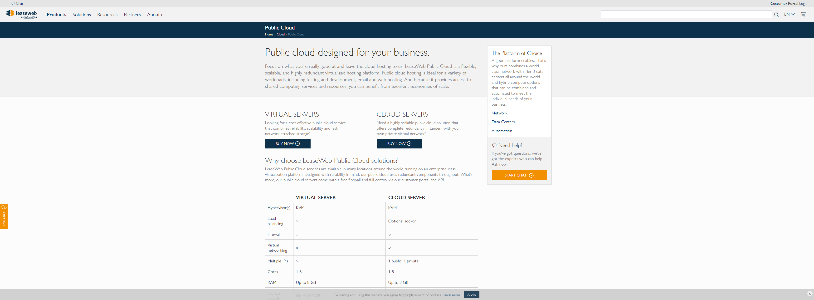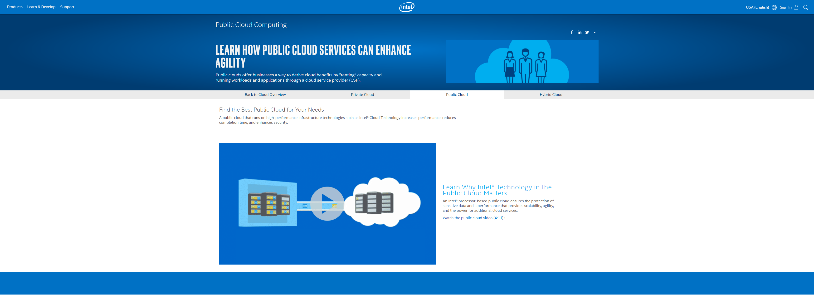Top 10 Public Cloud Providers
Public Cloud Provides: Software-as-a-Service (SaaS)-based solutions that enable companies to secure “all network and access aspects” of their public cloud IaaS deployments. In other words, it adds a layer of protection on top of virtual infrastructures from cloud providers.
Public Cloud Vs Private Cloud: Which Is Right for You?
Deciding to go along with a public or non-public cloud? It may be an enormous resolution and there’s a lot of complicated data on the market. My aim is to assist make clear these variations and provide some inquiries to ask your self about your organization’s wants which could assist when making an attempt to determine it out.
Read More: Top 10 Best Cloud Computing Providers for Small Business
Non-public cloud. Cloud infrastructure that’s operated solely for one group. It could be housed and managed on the group property (enterprise personal cloud). Or, it may be positioned offsite and managed by the group (hosted personal cloud) or managed by a 3rd occasion (managed personal cloud).
Public cloud. A cloud infrastructure that’s multi-tenant and made accessible to most people or a big trade group. It’s owned by a corporation promoting cloud providers.
Inquiries to ask your self when weighing the choices of personal vs public clouds:
1. What are your safety wants? Figuring out the extent of safety or compliance necessities in your firm or group is vital. Although, public clouds provide a really safe atmosphere, non-public clouds provide an inherent degree of safety that meet even the very best of requirements. As well as, you possibly can add safety providers equivalent to Intrusion Detection Programs and devoted firewalls.
2. What are your pace of scalability necessities? One adverse to non-public clouds is that its efficiency is proscribed to the variety of machines in your cloud cluster. Do you have to max out your computing energy, one other bodily server will have to be added. In a multi-tenant cloud atmosphere, this is not a difficulty as there are already different server sources accessible.
three. What’s your information of virtualization? We’re seeing firms all in favour of turning their present servers into a personal cloud, however they do not have the virtualization information wanted. If that is so, a top quality information middle may have licensed engineers on workers that may supply the consultations wanted so an organization may create their very own private cloud surroundings utilizing their current hardware.
four. What purposes must be run on a non-public cloud? Essentially the most best candidate for personal cloud deployments are giant enterprise functions. Techniques designed to help very massive databases for ERP or CRM deployments are appropriate for personal cloud infrastructures. Nevertheless, the expense won’t be justified for information storage, file servers and even an e-mail alternate server. In some circumstances, a hybrid possibility may take advantage of sense.
5. What’s your finances? The reality is that a personal cloud can price a considerable quantity extra. Nevertheless, do not fret! Public clouds, although multi-tenant, can supply a strong and safe atmosphere in your important information at a fraction of the price of a non-public cloud.
6. Are you involved about cloud lock in? There may be rising concern concerning cloud vendor “lock-in” which can trigger a enterprise to miss a public cloud resolution. There are distributors that present public clouds developed with proprietary APIs or different strategies that make it significantly tough emigrate to or combine with one other cloud platform. This situation could be overcome when you select a cloud supplier providing a cloud platform that adheres to business cloud trade requirements similar to. This commonplace permits for our shoppers to import and export digital machines from a large spectrum of cloud infrastructures resembling Hyper V, Xen, and VMware. Be sure that to ask your potential suppliers about whether or not or not their platform adheres to this trade normal.
Read More: Top 10 Cloud Security Companies
There may be loads of technical and advertising and marketing jargon on the market relating to cloud computing, and it may be onerous to muddle by means of the murky waters. I hope this data on personal and public clouds has been useful. My objective is to be a terrific useful resource for companies attempting to find out one of the best resolution to their IT infrastructure wants.
Top 10 Public Cloud Providers:
1. SOPHOS
Sophos can help you secure your infrastructure, whether running in the cloud, on-premises, or in a colocation facility. With Sophos Security for the public cloud, you get:
- All-in-one protection that combines multiple security technologies in a single firewall solution
- Sophos Server Protection supports Auto Scaling to help protect your Amazon EC2 instances from malware and ransomware, whether you need to scale capacity up or down.
- Familiar and consistent technology that spans environments
- Simple deployment that can be accomplished in minutes
- Complete visibility with detailed reporting on security events
- Flexible billing and licensing options to best meet your needs

SOPHOS
2. RACKSPACE
Rackspace: Managed Dedicated & Cloud Computing Services. In the public cloud, you get quick access to compute, storage, app hosting and more — as much as you need, when you need it. The hardware is located outside of your data center and is shared with other customers, which keeps prices low.

RACKSPACE
3. OVH
Cloud computing and dedicated servers – OVH. OVH provides a large selection of cloud services you can use for storing, managing and processing data and applications. You can do everything you need to quickly and very affordably.

OVH
4. DIMENSIONDATA
Dimension Data.
Our secure, managed cloud has a network-centric design and multiple layers of security.
- Our CloudControl management system and self-service user interface manages, governs, and automates your cloud environment.
- You can extend your network into your cloud environment with private connectivity and where needed provide complete isolation from public internet access.
- Our cloud systems are fully resilient including the power and cooling, network equipment, virtual server hosting systems, storage systems, and the CloudControl management system.
- We back-up our service with a 99.999% availability SLA for the network and infrastructure.
- We offer either hourly or monthly pricing plans.

DIMENSIONDATA
5. CLOUD.ORACLE
Enterprise Cloud Computing SaaS, PaaS, IaaS | Oracle Cloud. Oracle Cloud delivers the broadest selection of enterprise-grade cloud computing solutions, including SaaS, PaaS, and IaaS.

CLOUD.ORACLE
6. LEASEWEB
LeaseWeb | Global Hosted Infrastructure and Cloud Computing. LeaseWeb Public Cloud is a flexible, scalable, and highly redundant virtualized hosting platform. Public cloud hosting is ideal for a variety of workloads, including testing and development, email and web hosting.

LEASEWEB
7. VEXXHOST
VEXXHOST – High Performance Cloud Hosting Solutions,. With our enterprise-grade infrastructure, we deliver guaranteed consistent performance throughout our entire OpenStack® public

VEXXHOST
8. SUSE
Enterprise Linux, Openstack cloud, software-defined storage | SUSE. Shift upfront capital expense to pay-as-you-go operational expense. Whether migrating existing workloads or developing and deploying new applications, SUSE eases your transition to the public cloud.

SUSE
9. INTEL
An Intel® processor-based public cloud ensures the protection of sensitive data and a performance that provides scalability, agility, and the power for additional cloud services.

INTEL
10. UBUNTU
Ubuntu Server is the world’s most popular cloud operating system. Thanks to its security, versatility and policy of regular updates, Ubuntu is the leading cloud guest OS, running most workloads in public clouds today.

UBUNTU
Personal contact info – slikgepotenuz@gmail.com
Permanent Address :- Montville, NJ
CEO and co-founder at Cloudsmallbusinessservice.com